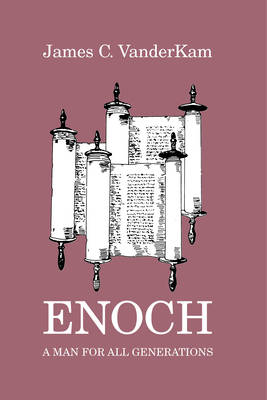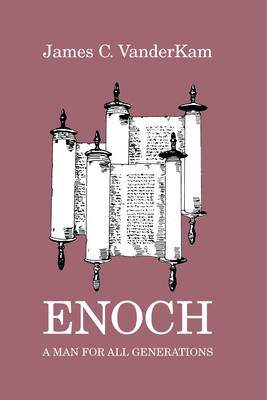
Bedankt voor het vertrouwen het afgelopen jaar! Om jou te bedanken bieden we GRATIS verzending (in België) aan op alles gedurende de hele maand januari.
- Afhalen na 1 uur in een winkel met voorraad
- In januari gratis thuislevering in België
- Ruim aanbod met 7 miljoen producten
Bedankt voor het vertrouwen het afgelopen jaar! Om jou te bedanken bieden we GRATIS verzending (in België) aan op alles gedurende de hele maand januari.
- Afhalen na 1 uur in een winkel met voorraad
- In januari gratis thuislevering in België
- Ruim aanbod met 7 miljoen producten
Zoeken
Omschrijving
Credited with predicting the flood and foretelling a second punishment but mentioned only briefly in the Hebrew Bible, Enoch is one of the most intriguing yet little-known characters of ancient Jewish and Christian literature. Genesis devotes just four verses to Enoch; yet this man became a central figure in many of the oldest surviving Jewish legends of apocalypse, the subject of a larger number of traditions during the intertestamental period, and a significant character in early Christian writing. In this examination of ancient references to Enoch and to Enochian themes, James C. VanderKam illumines the range of ancient testimonies to the man, his teachings, and his work. As he introduces readers to the mostly extrabiblical traditions surrounding Enoch, VanderKam addresses the significant question of how the canon of the Hebrew Bible came to be decided. He also uses the Enochian literature as a point of departure for an analysis of the apocalyptic literary tradition and the historical connection between Jewish and Mesopotamian thought.
Specificaties
Betrokkenen
- Auteur(s):
- Uitgeverij:
Inhoud
- Aantal bladzijden:
- 207
- Taal:
- Engels
- Reeks:
Eigenschappen
- Productcode (EAN):
- 9781570037962
- Verschijningsdatum:
- 22/07/2008
- Uitvoering:
- Paperback
- Formaat:
- Trade paperback (VS)
- Afmetingen:
- 152 mm x 229 mm
- Gewicht:
- 335 g

Alleen bij Standaard Boekhandel
+ 96 punten op je klantenkaart van Standaard Boekhandel
Beoordelingen
We publiceren alleen reviews die voldoen aan de voorwaarden voor reviews. Bekijk onze voorwaarden voor reviews.









